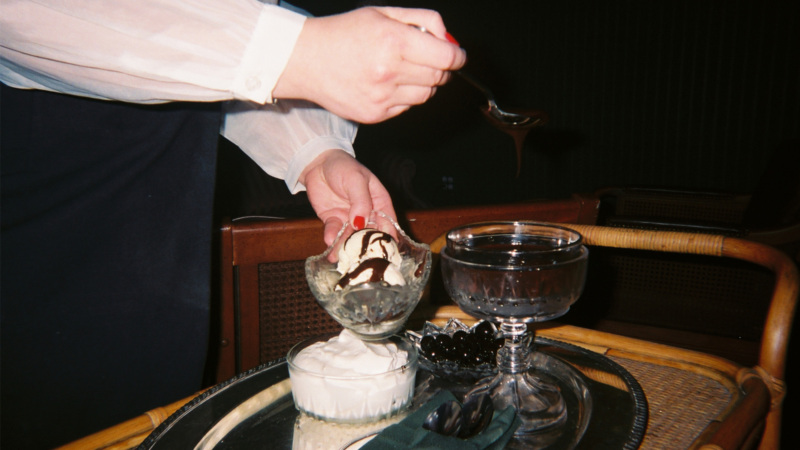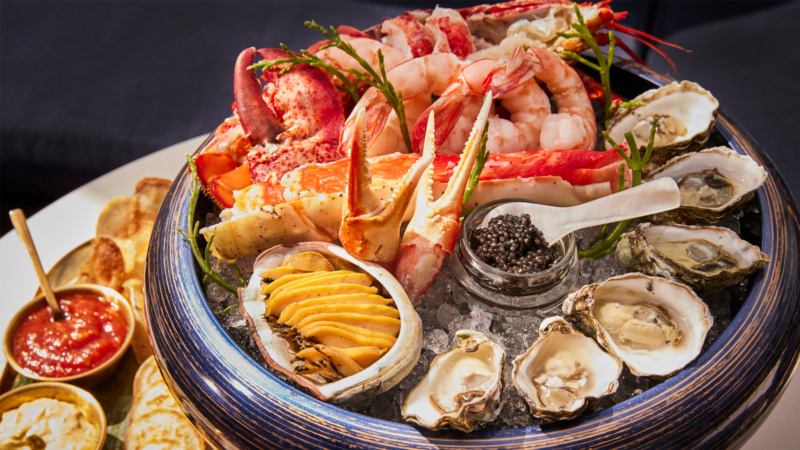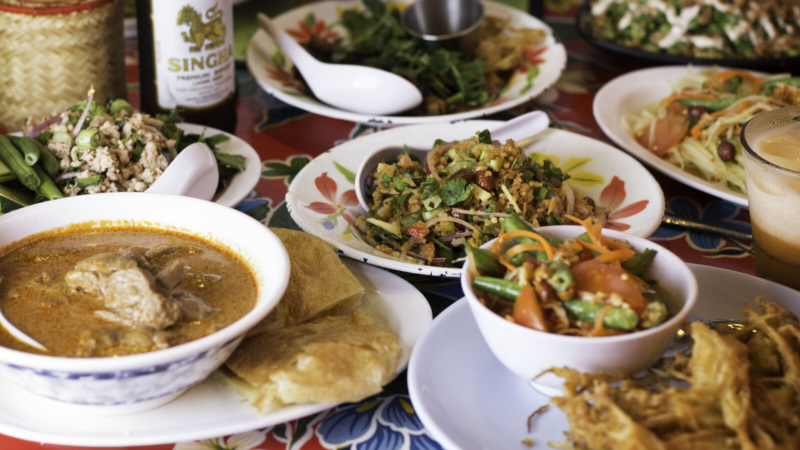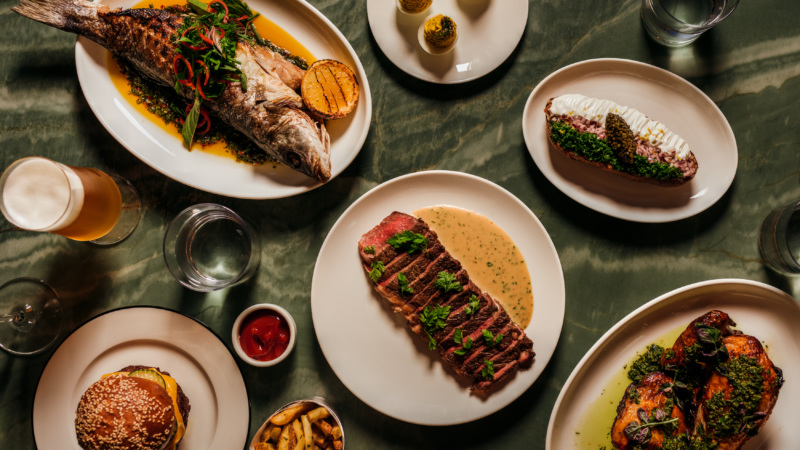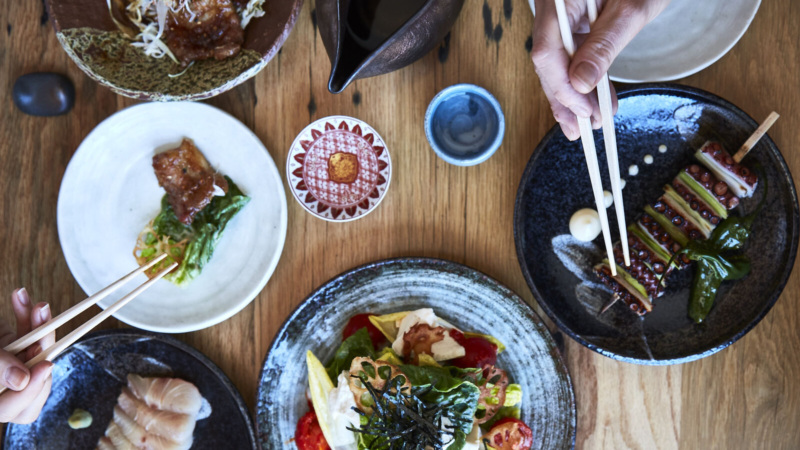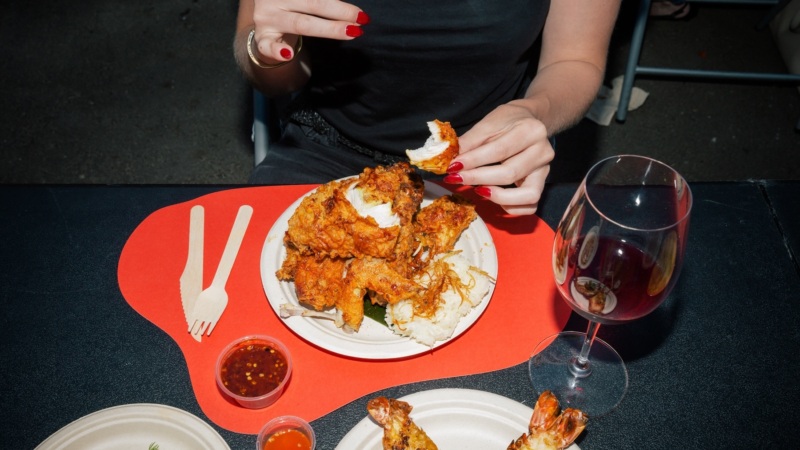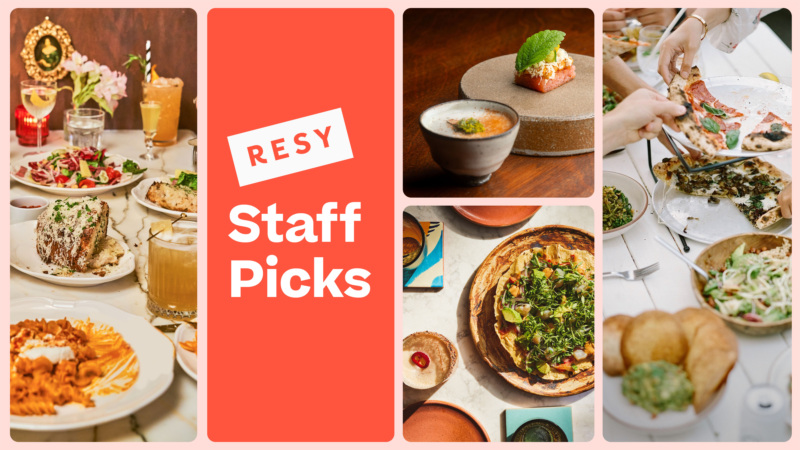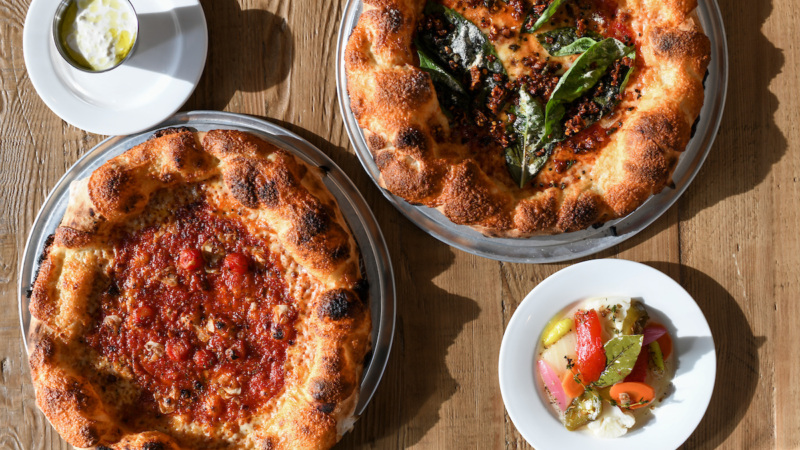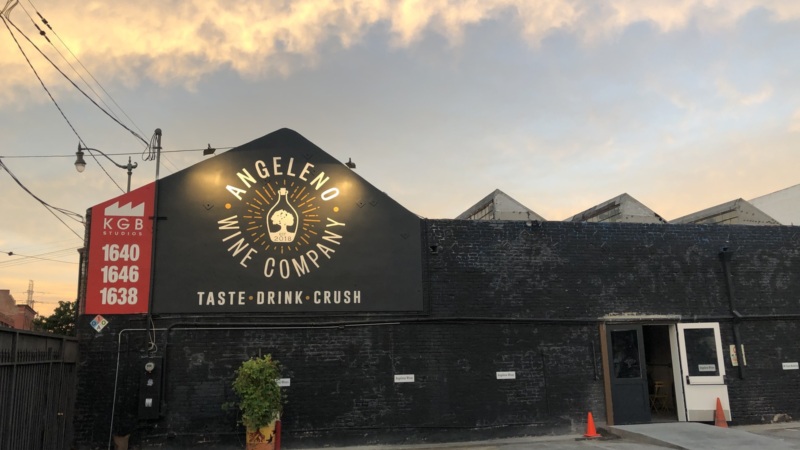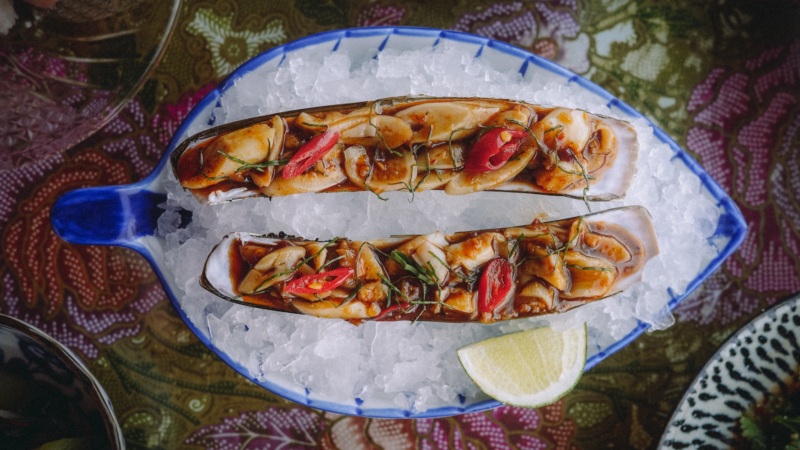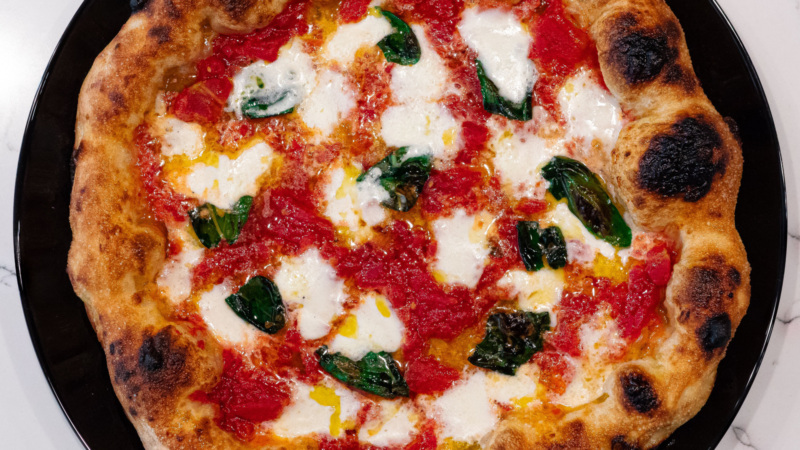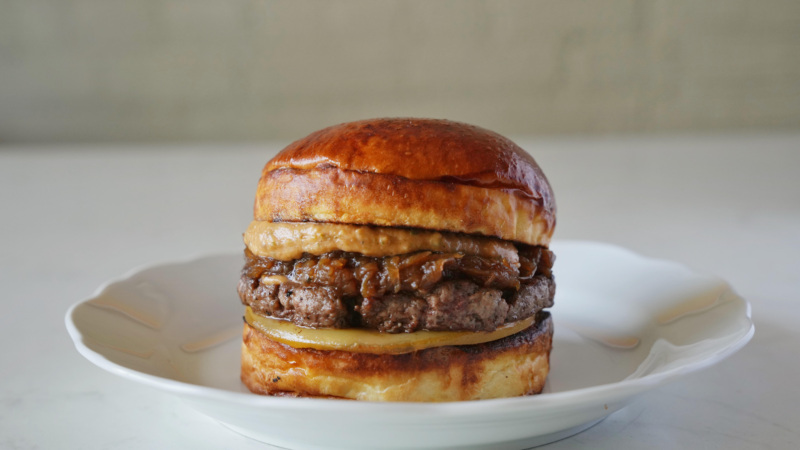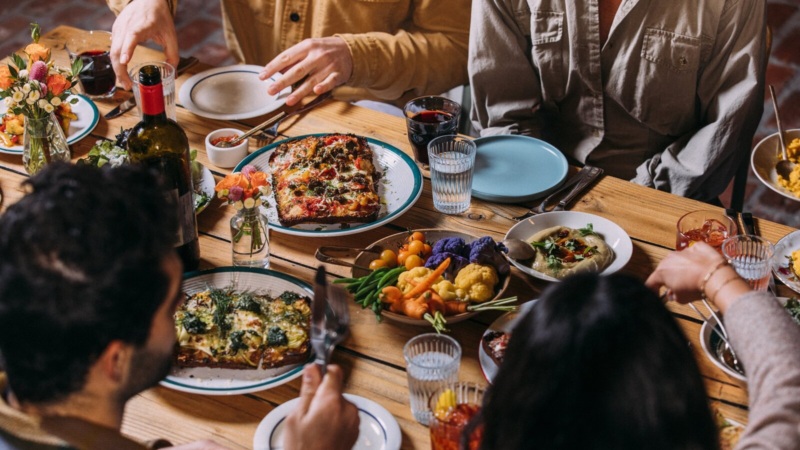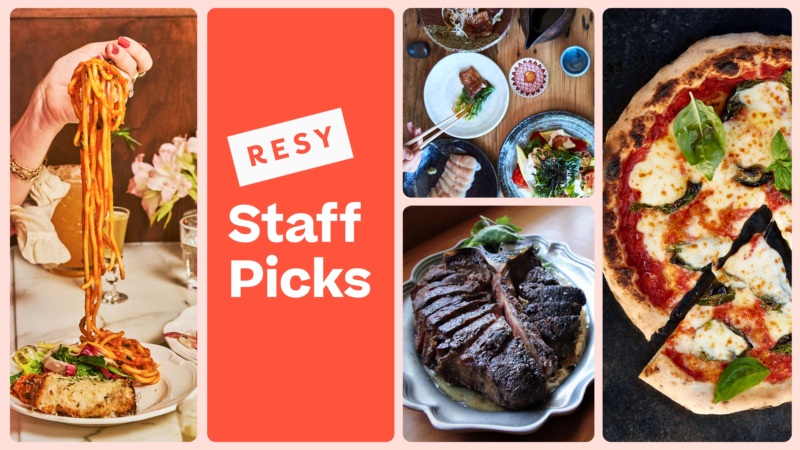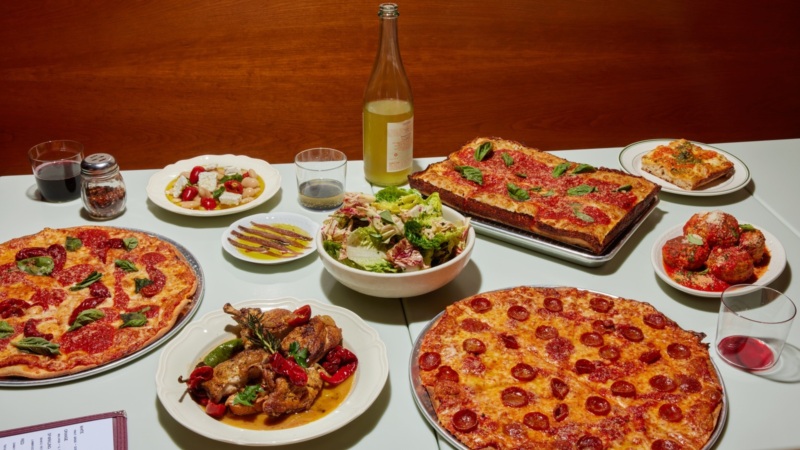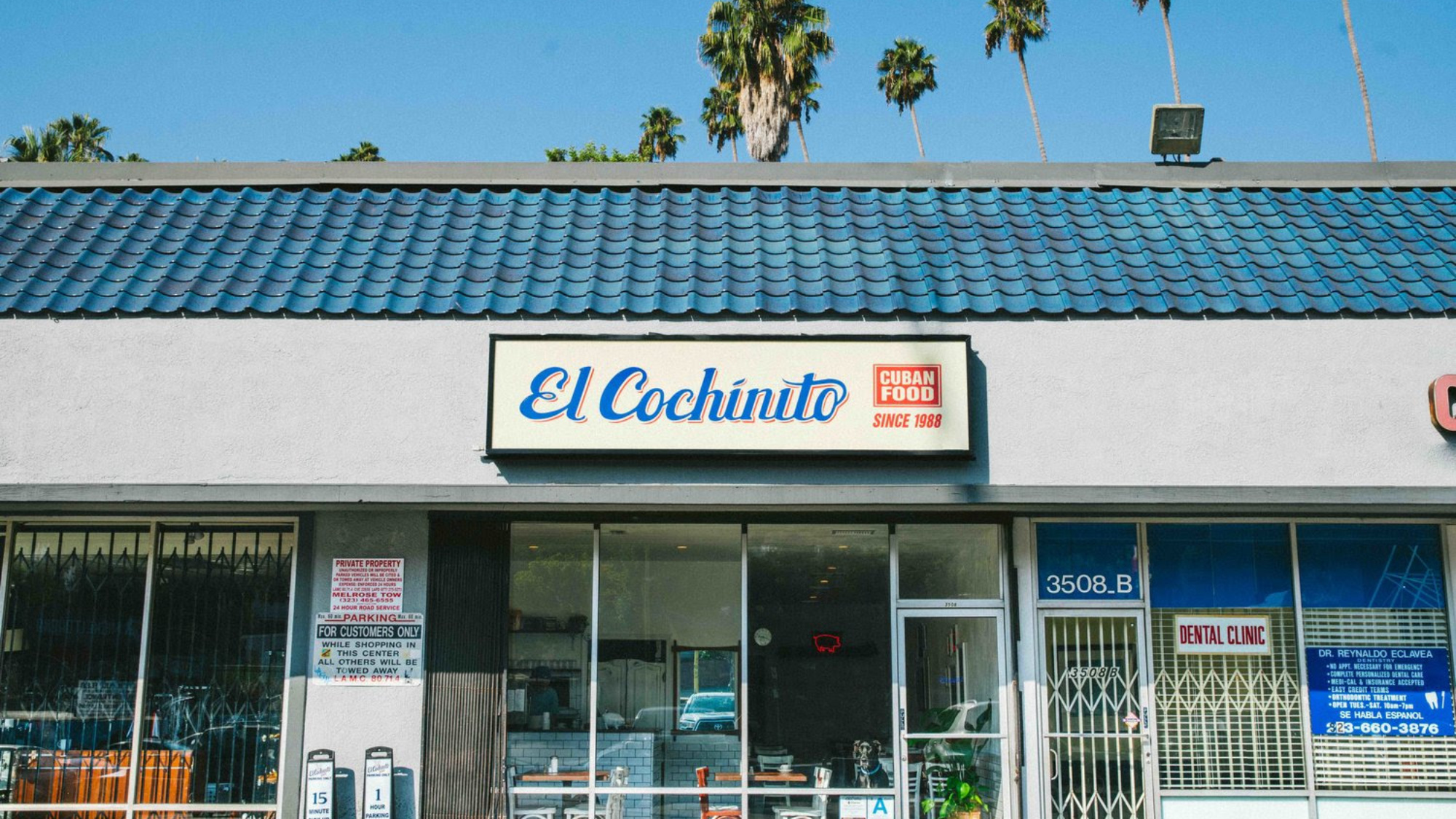
Daniel Navarro Kept El Cochinito in the Family. Now He’s Made Sure It Reflects the Community
In the days before COVID-19, there’s a good chance you drove by El Cochinito a million times without noticing it. Tucked between a dental clinic and thrift store in a Silver Lake strip mall, its nondescript glass facade — topped by a white sign with blue lettering — blended right into the neighborhood. These days, it’s a lot easier to spot, thanks in large part to its parking-lot patio, twinkle lights glowing, reed fence surrounding a carpet of astroturf.
Through the summer, there were Dodgers tailgate parties on the patio with a big-screen TV showing the games. But most nights, it’s filled with locals and regulars stopping for their lechon asado or ropa vieja fix. Newcomers discover a Cuban sandwich that’s been dubbed the best in the world, plus a stellar list of skin-contact wines and beers made by brewers of color. It’s amazing this place has flown under the radar this long.
Thank owner and chef Daniel Navarro for pushing the envelope of what a family-run Cuban restaurant can be. When he got the call that his mother and uncle wanted to sell the place in 2015, he was already a Culinary Institute of America grad and a chef at trendy Estela in downtown Manhattan. He pleaded with them to hold off on signing anything until he could get back to the West Coast. That weekend he left New York, and two months later, he moved back to L.A. He’s been steering the ship ever since.
Navarro knew he had to make adjustments to keep up with the changing neighborhood and diverse palate of L.A. You can’t get by with just a great sandwich anymore. But he also wanted to keep the soul of the restaurant intact. He owed that much to his grandmother, Gladys Gutierrez, who founded El Cochinito before he was even born.
▪️
Gutierrez was a force. She fled post-revolution Cuba in the 1960s and moved to L.A., in lieu of Miami or New York, to raise her two children. Back then the northeast neighborhoods around Silver Lake, especially Echo Park and Filipinotown, were enclaves for L.A.’s Cuban exiles. The Cuban population has never been huge in Southern California but it made an impact; one of the most beloved homegrown businesses is Porto’s Bakery, which got its start in Silver Lake. Gutierrez knew that this new wave of expats were hungry for the tastes of home, so she started cooking food in her small kitchen on Occidental Avenue and selling it to neighbors.
Her cantinas, meals served in tiered metal boxes that stack together, were just like the kind you’d find in Cuba or Miami. Those were subscription-based, often made by local cafes and restaurants, similar to Indian tiffins or even some of today’s home delivery services. Gutierrez packed her roast pork or chicken, soft maduros, and black beans and rice in the cantinas, and she and a friend would drop them off at people’s homes. Not only was it a way to support her family, but she found a way to build a deep connection with the community.
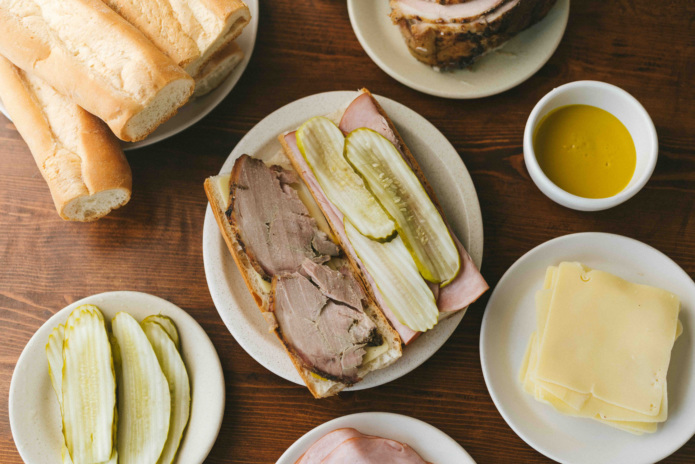
By the mid-1980s, the demand for her cantinas grew too great, so she approached the owner of what’s now El Cochinito and asked if she could use his kitchen when the restaurant was closed. She’d bring her own supplies, cook, and leave before he opened for dinner. Her business multiplied exponentially, and by 1988, she took over the restaurant entirely.
Having more space meant she could expand her menu, adding dishes she learned from growing up around her father’s restaurants in Havana. Her slow-roast pork and ropa vieja were legendary. She made a meat-filled fried rice just the way a childhood friend, a descendant of Chinese workers brought to the island in the 19th century, taught her. The food was delicious and cheap — a plate cost around $4 or $5.
“We have a customer who’s been eating here since then,” says Navarro. “His mom used to buy those cantinas, and now he comes to El Cochinito at least once a week.”
▪️
Navarro hasn’t changed much about the restaurant from its 1988 roots. A few dishes have dropped off the menu (RIP, paella), but he’s added and perfected others, like that Cuban sandwich, which took top honors at the 2018 International Cuban Sandwich Festival. He amped up the drinks list, and made a few upgrades to the small space (hello, pink neon pig).
“We worked really hard on keeping things the same,” Navarro says. “It might be more standardized now, and the quality of ingredients has improved, but the recipes are the same. I still use the brand of cooking wine that she really liked, and the soy sauce for the fried rice. I’ve gone to every store in Chinatown looking for it.”
In part, that’s because Navarro learned to cook at Gladys’ side, and absorbed everything: How she made her rice; what crackers to use for the breading for pollo empanizado, fried flattened chicken that’s topped with thinly sliced onions and lime juice; exactly how long slow-roasted pork should cook to perfection. He visited the downtown produce markets with her, and stood on a milk crate to help peel onions.
“I’m confident she’d be proud that I took it over, but she knew how hard the restaurant industry is,” he says. “Most of my family were like first-generation immigrants who wanted you to go to college and get a degree. I was the only one who wanted the restaurant. She’d be happy that my cousins have worked with me.”
Still, continuing a legacy isn’t easy. Navarro didn’t want to lose regulars who had been coming since his grandmother ran the kitchen, but he also needed to attract new customers. He also had a lot more competition in the neighborhood, some very close to home, like when Trois Familia, from the Jon & Vinny’s team, opened in the same complex (it’s since closed and is now Eszett). He could’ve worried that the rent would be raised or other gentrification concerns, but new businesses also brought new eyeballs to El Cochinito.
The restaurant’s steady success allowed him to take over Cafe Tropical a few miles east on Sunset Boulevard, another family-owned Cuban staple. Navarro saw it as an opportunity to expand his menu, like making papas rellenas, and guava and cheese pastries that the tiny El Cochinito kitchen couldn’t handle. He has his own coffee roasted specifically for Cuban espresso, and bakes his own bread, vital to that Cuban sandwich that garnered a world’s- best moniker.
▪️
To operate two Cuban restaurants in Silver Lake, blocks from where his grandmother made cantinas in her home 30 years ago, felt right. And then the pandemic hit.
“You’re in this industry to feed people, and when it was taken away so quickly, I thought, I’m baking bread but no one’s buying it. So I’d drop it off at the fire station or a doctor’s office,” we had to adjust,” Navarro says of the shutdown. “And then that evolved. When all that time landed on our laps, I sat with the staff every week trying to figure out what to do. We were preparing for the worst, but also focusing on how to keep ourselves healthy and providing for the community.”
They started making sandwiches twice a week for No Us Without You, a non-profit that provides food for undocumented hospitality workers unemployed because of Covid. Cafe Tropical sells T-shirts and masks made by a neighbor to help fund ingredients for the sandwiches. Navarro rallied around other small businesses: He partnered with Silverlake Lounge, the longtime neighbor of Cafe Tropical, to sell bottled cocktails while it awaits reopening; sells hot sauce from strip-mall neighbor Ezette; curated the El Cochinito wine list to support similar family-owned businesses; and pivoted to only selling beer made by brewers of color, like NOVO Brazil Brewing in Chula Vista, and Arrow Lodge Brewing in Covina.
“I always feel that we’re a reflection on the neighborhood, and if we don’t evolve, then we’re not going to be successful,” Navarro says. “We had to keep supporting each other. I tell the staff that every day we stay open, we have another opportunity to keep our jobs. But we’re also fighting for all small businesses, not just us. Let’s support everyone.”
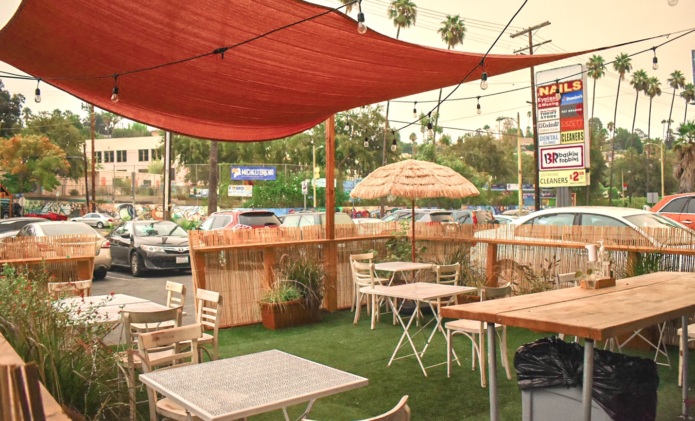
While, he says his grandmother would be stressed with the current state of the restaurant industry, there’s also no doubt she would be proud that he’s not just surviving, but participating and adding to the community in meaningful ways.
“The business around the restaurant, the big city, the inspectors, those elements that were out of her control were her biggest challenges. Today it’s all out of our control,” Navarro adds. “If we’re doing everything right on our end, we gotta hope people are going to give us a shot.”
- Welcome to The Classics
- The Golden Bull Has Been a Cornerstone for Santa Monica Canyon and the LGBTQ Community
- The Layered Legacy of Roscoe’s House of Chicken & Waffles
- Cielito Lindo Defines the Flavors of East L.A.
- The Formosa Cafe is a Masterclass in Restoration
- The Night That Changed L.A. Forever Also Put El Coyote on the Map
- El Tepeyac’s Rich Family Legacy Continues One Burrito at a Time

